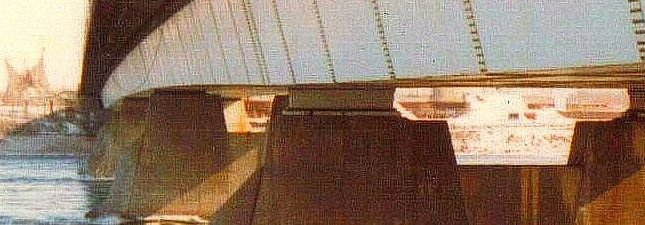- The most interesting characters are the ones who are presented as being the most problematic, for example, Edwin Hubble and his huge ego, or Fritz Zwicky and his crazy sounding lateral thinking. Both are presented in a somewhat worse light than the "reasonable" folk like George Hale. Cooperation and cooperative people get things done but the competitive bastards are the ones who are valued more if they manage to prove something. I guess it is because the competitive route is more risky, more likely to move the culture in new directions, painful as it may be to the culture.
- The other striking insight has to do with a line near the end of the book that mentions that charged-coupled device (CCD) sensors are so much more efficient than film for capturing light that a one meter telescope today could do what the 200 inch one did with film. This is certainly an example of disruptive technology, given the herculean efforts made to build the Hale machine, with its precision movements and optics. Of course CCD's can be used with the 200 inch mirror, but one must wonder if such efforts would have been made if CCD's had been available in the 1920's.
Tuesday, September 30, 2008
Palomar's Hale Telescope
Finished reading Ronald Florence's "The Perfect Machine" about the project to build the 200 inch telescope. A couple of things struck me.
Labels:
books,
politics,
psychology,
science,
writing
Monday, September 29, 2008
Science in fiction
A review of the Bourbaki Gambit
I am surprised that a prestigious imprint like Penguin would accept The Bourbaki Gambit as a novel. It is an uncomfortable advertisement for its author at best and at worst an insult and a slight to the artistic process by a scientist too conceited to realize it. Djerassi, who made discoveries which led to the birth control pill is branching out into a style he calls science-in-fiction. He writes of scientists and of their egos, a bit like C.P. Snow, but with much less art. He revels in showing off his observations of fancy places, but really only manages to show his limited world view. Capri, Manhattan and cliches about vacation resorts.
I guess someone who has achieved so much in science may be excused for thinking that art is something secondary, and this is exactly what writing this novel and sponsoring the arts indicates.
Labels:
art,
books,
humanities,
psychology,
science,
writers,
writing
Subscribe to:
Posts (Atom)
